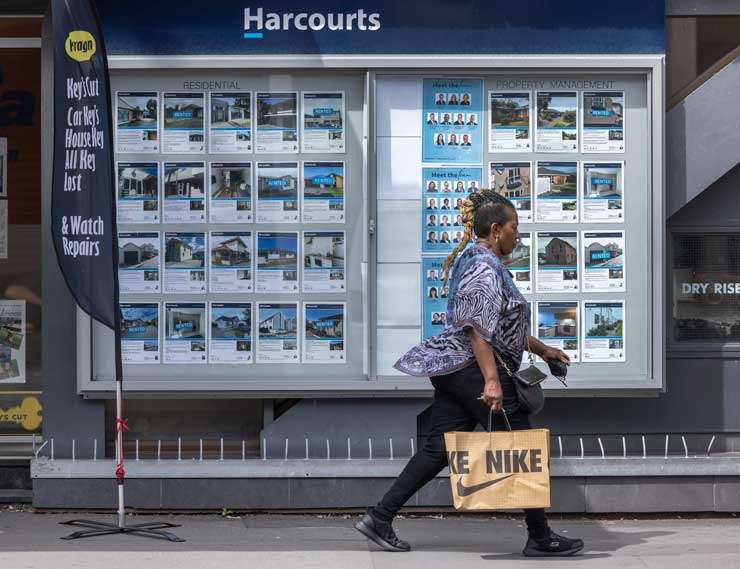Nearly everyone who took their house to market in Christchurch in last three months of 2021 made a profit, according to CoreLogic’s latest Pain and Gain Report.
New Zealand’s second biggest city saw a median resale gain of $328,250 for the quarter.
That’s lower than other main centres but still huge, especially for one of the country’s most affordable cities where price growth had been flat for much of last decade, and the median resale profit was $160,000 at the end of 2020.
Start your property search
The percentage of properties reselling for a loss was 0.6%, down from 1.6% in the third quarter of the year, with the median loss sitting at $3500, the lowest of all the major metros.
Nationwide 99.3% of property resales from October to December sold above their last purchase price.
Agents spoken to by OneRoof described Christchurch’s housing market in 2021 as phenomenal, adding that they had never seen the market so hot.
Happy vendors were scooping up over and above what they had expected, with one agent saying some sellers felt like they had won the lottery.
Two years ago, about 90% of Christchurch resales made a profit but in the last three months of 2021, 99.5% of resales by owner occupiers and 99.2% by investors were over and above their last sale price.
The growth in property values since the Covid pandemic struck in 2020 has boosted resale profits in both Christchurch and Auckland but while “Auckland’s affordability has deteriorated again to concerning levels, Christchurch still has some appeal”, says the report.
“Accordingly, it wouldn't be a surprise to see the gain figures stay higher for longer in Christchurch than in some of the other main centres.”

CoreLogic chief economist Kelvin Davidson says Christchurch still has affordability on its side. Photo / Peter Meecham
The report points out that Christchurch, like all main centres, will be affected by tighter lending rules and higher mortgage rates.
“But with unemployment low and mortgages already tested not only at current rates but also theoretical peak future rates, these should prove to be a challenge not a crisis,” says the report.
That Christchurch resale gains were lower than New Zealand’s other major metros was understandable given that house prices in the city were lower to start with, said Kelvin Davidson, CoreLogic’s chief property economist.
“Affordability is getting more stretched in Christchurch, too, but it's still less stretched than elsewhere.”
Davidson’s gut feel is that in the year ahead, Christchurch will do a bit better than the rest of the country: “I think Christchurch’s growth in value will slow but it still could outperform the national average because it's still got affordability on its side.
“It wouldn't surprise me, too, if the gain figures on this report rose a bit for Christchurch and looked a bit stronger than elsewhere and then start to tail off a bit further out.”
According to the latest OneRoof figures, the city’s average property value is $786,000, although CoreLogic’s own figures peg the city’s median property value at $750,000.
Factors impacting value growth include the fact a lot of land was opened up for developments in greater Christchurch, including Selwyn and Waimakiriri, but that land has now dried up and land prices have gone up by a lot.
“There’s not as many subdivisions being opened up so one of those constraints on Christchurch values which has been quite a lot of supply is now not there so much anymore so they are facing similar sort of supply and demand pressures that have been in place elsewhere,” Davidson said.

Pedestrians walk past a real estate window in central Christchurch. Photo / Peter Meecham
Justin Haley, from Bayleys Christchurch, said last year’s market performance had been surprising.
“There's never been a stronger market. Talking to agents particularly who had been around for 30-plus, 40 years, they've never seen a market like it,” he said.
“What that meant was vendors were having their expectations exceeded on a regular basis.”
He cited a recent sale where the auction was brought forward at $1.92m which then bid out to $2.25m.
“There were 10 bidders in the room. It just shows how popular single-level, smaller floor-plated modern post-earthquake construction is,” he said.
“That’s another lazy $330,000. That was very common last year. We were seeing auctions brought forward regularly and consistently bidding over and above what the vendor had already agreed to - we've never seen that type of activity or behaviour before.”
This was down to the perfect storm of record low interest rates and record low stock levels, but stock levels are back up now.
This time last year there were around 850 listings whereas normally they there’d be around 1400 or 1500 but “we’re back up to 1500, 1600 listings now so there’s going to be more choice for buyers”.
Haley said the clearance rate at auctions was still at 76%, and while there aren't as many buyers per property, properties are still selling well.
“Are we working a little bit harder? Probably, but that's because vendors have expectations that had been elevated over the last two years of significant growth and buyers are just simply saying ‘hey, look, well, that's the best I can do at the moment because I'm going to go and have a look at the other one round the corner tomorrow.’”
Interest rates and inflation were rising and the CCCFA was making money harder to get, yet banks were still lending, he said.
“If they don’t lend they don’t make money. I think we've got a positive outlook. I see it as being a steady, normalised market, which is really healthy.”
And Christchurch was heavily still undervalued compared to the rest of the country, he said.
Tony MacPherson, from Ray White, agreed. “I’ve been in the business over 30 years and it’s the best market I’ve seen,” he said.
A lot of auctions were brought forward and it wasn't unusual for vendors to pick up an extra $100,000 on a median priced house, he said.
“Some of them really came away feeling like they'd won Lotto. I had one lady say to me she was going to retire early.”
The auction clearance rate for his agency was huge at 81%.
“People out of Auckland can move down here and basically halve their housing costs, and the wages aren't that much different.”












































































